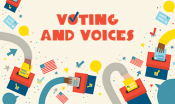text
Informational
Paragraph 175
The German Reichstag passed the following version of Paragraph 175, which imposed harsher legal restrictions and penalties on sexual activity between men, in 1935. With this law came a dramatic increase in the number of individuals facing prosecution for homosexual activity.
July 2, 2014



